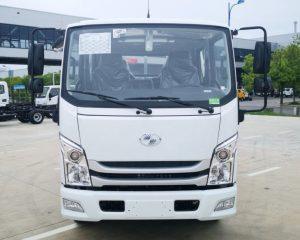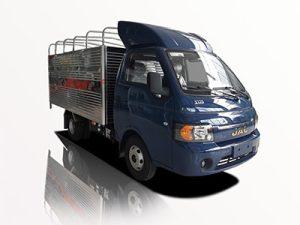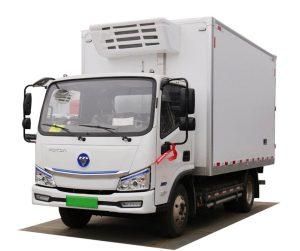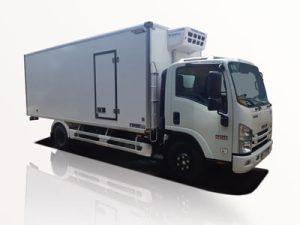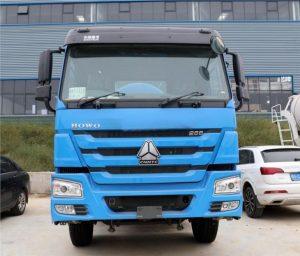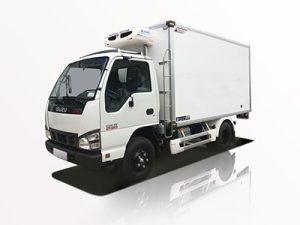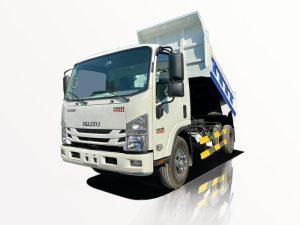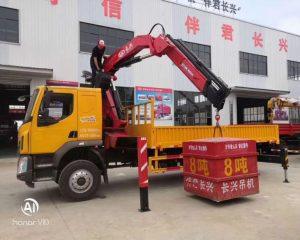Monday to Saturday - 8:00 -17:30
Exploring the Different Types of Recreational Vehicles: A Comprehensive Guide
Recreational vehicles (RVs) are a cornerstone of the outdoor adventure lifestyle, offering the freedom to travel while enjoying the comforts of home. With a variety of types available, each suited for different styles of travel and activities, understanding the differences can help you choose the best RV for your needs. In this article, we will explore the various types of recreational vehicles, their features, pros and cons, and tips for selecting the right one for your adventures.
Understanding Recreational Vehicles
A recreational vehicle (RV) is a motor vehicle or trailer that includes living quarters designed for accommodation. They are popular among outdoor enthusiasts for camping, road trips, and traveling. The fundamental purpose of an RV is to provide a convenient way to travel and explore while having many of the comforts of home.
Types of Recreational Vehicles
1. Motorhomes
Motorhomes are large, self-propelled vehicles that combine transportation and living space. They are categorized into several classes based on their size and design.
Class A Motorhomes
Class A motorhomes are the largest type of motorhome, resembling buses and offering ample living space. Features often include:
- Spacious interiors with multiple slide-outs
- Luxury amenities such as full kitchens and bathrooms
- High-end entertainment systems
Pros: Vast living space, comfortable for long trips.
Cons: High initial cost and fuel consumption.
Class B Motorhomes
Class B motorhomes, also known as camper vans, are smaller and more compact. They are easier to drive and park, making them perfect for solo travelers and couples. Typical features include:
- Compact living space.
- Basic kitchen and bathroom facilities.
- Flexible designs for various uses.
Pros: Easy to drive, good fuel efficiency.
Cons: Limited space and amenities.
Class C Motorhomes
Class C motorhomes are medium-sized and recognizable by the over-cab sleeping area, offering a balance between space and drivability. Features include:
- Separate sleeping space for children or guests.
- Full bathrooms and kitchens.
- Good storage options.
Pros: Adequate living space for families.
Cons: May consume more fuel than Class B models.
2. Travel Trailers
Travel trailers are towed by a vehicle and come in various sizes and styles. They are popular among families who enjoy camping and road trips.
Standard Travel Trailers
Standard travel trailers vary in size, often providing basic amenities like:
- Kitchen and bathroom facilities.
- Sleeping areas ranging from bunks to queen beds.
- Multiple floor plans for customization.
Pros: More living space than motorhomes for the price.
Cons: Requires a suitable towing vehicle.
Hybrid Travel Trailers
Hybrid travel trailers blend traditional towing trailers with tent camping. They include expandable ends that pop out to provide extra sleeping space.
Pros: Lightweight and easy to tow.
Cons: Less insulated than traditional hard-sided trailers.
Fifth Wheel Trailers
Fifth-wheel trailers are designed to be towed by a pickup truck with a special hitch. They often provide a high level of luxury.
- Spacious living areas.
- Higher ceilings and better insulation.
- Multiple slide-outs for additional space.
Pros: Great for long-term living and travel.
Cons: Requires a specific towing vehicle.
3. Pop-Up Campers
Pop-up campers, or folding campers, are compact trailers that feature collapsible sides for easy towing and parking. They provide a great blend of camping and RV benefits.
- Quick setup and takedown.
- Lightweight and easy to tow.
- Affordable option for camping enthusiasts.
Pros: Lower cost and easy storage.
Cons: Limited space and amenities compared to travel trailers.
4. Truck Campers
Truck campers are portable living units that can be mounted onto the bed of a pickup truck. They are excellent for off-road adventures and can be easily removed.
- Compact and easy to transport.
- Offers amenities similar to standard RVs.
Pros: Highly versatile and great for off-road conditions.
Cons: Limited living space.
5. Class B+ Motorhomes
Class B+ motorhomes are a crossover between Class B and Class C models, offering a more streamlined design and better aerodynamics.
- More living space than Class B.
- Great for couples and small families.
Pros: Easier to maneuver than larger motorhomes.
Cons: Fewer features compared to larger Class A units.
6. Sports Utility Vehicles (SUVs)
SUVs are not traditional RVs but are often converted for camping purposes, providing versatility for road trips.
- Ability to tow trailers or small campers.
- Can be used for daily driving.
Pros: Dual purpose for everyday use and adventures.
Cons: Limited space compared to dedicated RVs.
7. Specialty RVs
Specialty RVs cater to specific needs, such as luxury or off-road capabilities. Examples include:
- Luxury motorhomes with high-end finishes.
- Off-road trailers designed for rugged terrain.
Pros: Tailored features for specific adventures.
Cons: Often come at a premium price.
Choosing the Right RV for You
Selecting the best recreational vehicle involves understanding your needs, preferences, and budget. Here are some aspects to consider:
1. Purpose of Use
Determine how you plan to use the RV. Will it be for weekend getaways, long-term travel, or full-time living? This decision can shape your choice significantly.
2. Budget Considerations
Budget is a major factor in choosing an RV. Consider not only the upfront cost but also maintenance, fuel, and insurance.
3. Comfort and Amenities
Evaluate the level of comfort and amenities you desire. Larger RVs often come with more features like full kitchens and bathrooms, whereas smaller units may offer just the basics.
4. Towing Capacity
If you opt for a towable RV, ensure your vehicle can safely tow the chosen trailer. Check your vehicle’s towing capacity before making decisions.
5. Parking and Storage
Consider where you will park and store your RV when not in use. Space constraints might affect your choice.
6. Travel Style
Your preferred travel style will influence your decision. If you travel solo, a Class B or truck camper might suit you, while families may prefer Class A or C motorhomes.
Practical Tips for RV Owners
1. Maintenance is Key
Regular maintenance is crucial for keeping your RV in good condition. Set a schedule for inspections, tire rotations, and fluid checks.
2. Familiarize Yourself with RV Systems
Understand the various systems in your RV, including plumbing, electrical, and heating. This knowledge will help you troubleshoot minor issues on the road.
3. Plan Your Trips Ahead of Time
Research campgrounds, attractions, and rest stops before embarking on a journey. Reservations can save you time and ensure you have a place to stay.
4. Join RV Communities
Connect with other RV enthusiasts through clubs and online forums. Sharing experiences and tips can greatly enhance your RV lifestyle.
5. Practice Safe Driving
Driving an RV requires different skills than driving a car. Practice maneuvering in different conditions and be aware of size limitations.
FAQ Section
1. What is the best type of RV for beginners?
Class B motorhomes or pop-up campers are often recommended for beginners due to their ease of use and compact size.
2. Are there RVs suitable for off-road camping?
Yes, off-road trailers and certain Class B motorhomes are designed for rugged terrain and outdoor adventures.
3. How much does an RV typically cost?
The cost of an RV varies widely, ranging from a few thousand dollars for used models to over $300,000 for luxury motorhomes.
4. Do I need a special license to drive a motorhome?
In many cases, a standard driver’s license is sufficient. However, check local regulations as some larger units may require a commercial license.
5. How do I maintain my RV?
Regular checks of the tires, brakes, fluids, and appliances are essential. Cleaning and inspecting the roof and seals are also important to prevent leaks.
6. Can I live full-time in an RV?
Yes, many people choose to live full-time in their RVs. It’s essential to have a suitable setup and to plan for waste management and utilities.


